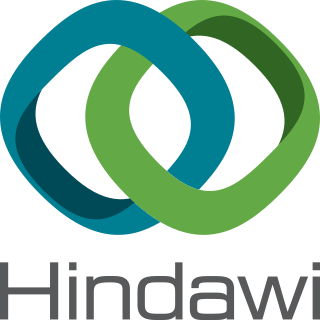
Open access (OA) is a set of principles and a range of practices through which research outputs are distributed online, free of access charges or other barriers. With open access strictly defined, or libre open access, barriers to copying or reuse are also reduced or removed by applying an open license for copyright.
John Wiley & Sons, Inc., commonly known as Wiley, is an American multinational publishing company that focuses on academic publishing and instructional materials. The company was founded in 1807 and produces books, journals, and encyclopedias, in print and electronically, as well as online products and services, training materials, and educational materials for undergraduate, graduate, and continuing education students.

Michael Keith Billington is a British author and arts critic. He writes for The Guardian, and was the paper's chief drama critic from 1971 to 2019. Billington is "Britain's longest-serving theatre critic" and the author of biographical and critical studies relating to British theatre and the arts. He is the authorised biographer of the playwright Harold Pinter (1930–2008).

Hindawi is a publisher of peer-reviewed, open access, scientific journals currently active in scientific, technical, and medical (STM) literature. It was founded in 1997 in Cairo, Egypt, and purchased in 2021 for $298 million by John Wiley & Sons, a large US-based publishing company. The publisher has been classified as a predatory publisher. After almost 10,000 article retractions in 2023, Wiley announced that it would cease using the Hindawi brand.

Electronic Information for Libraries (EIFL) works with libraries worldwide to enable access to digital information for people in developing and transition countries. They are an international not-for-profit organisation based in Vilnius with a global network of partners.
Continuum International Publishing Group was an academic publisher of books with editorial offices in London and New York City. It was purchased by Nova Capital Management in 2005. In July 2011, it was taken over by Bloomsbury Publishing. As of September 2012, all new Continuum titles are published under the Bloomsbury name.
John Hartley, , FAHA,, FLSW, ICA Fellow, is an Australian academic and a John Curtin Distinguished Emeritus Professor. He was formerly Professor of Cultural Science and the Director of the Centre for Culture and Technology (CCAT) at Curtin University in Western Australia, and Professor of Journalism, Media and Cultural Studies at Cardiff University. He has published over twenty books about communication, journalism, media and cultural studies, many of which have been translated into other languages. Hartley is an adjunct professor with CCAT.
Harold Pinter and academia concerns academic recognition of and scholarship pertaining to Harold Pinter, CH, CBE (1930–2008), English playwright, screenwriter, actor, director, poet, author, political activist, and the 2005 Nobel Laureate in Literature, at the time of his death considered by many "the most influential and imitated dramatist of his generation."

The Scholarly Publishing and Academic Resources Coalition (SPARC) is an international alliance of academic and research libraries developed by the Association of Research Libraries in 1998 which promotes open access to scholarship. The coalition currently includes some 800 institutions in North America, Europe, Japan, China and Australia.
An open textbook is a textbook licensed under an open license, and made available online to be freely used by students, teachers and members of the public. Many open textbooks are distributed in either print, e-book, or audio formats that may be downloaded or purchased at little or no cost.
Frances Spalding is a British art historian, writer and a former editor of The Burlington Magazine.
The National Book Trust of Uganda (NABOTU), founded in 1997, is a non-government organization that brings together associations and institutions within Uganda’s book sector to promote authorship, publishing and a culture of reading in Uganda.
An open-access mandate is a policy adopted by a research institution, research funder, or government which requires or recommends researchers—usually university faculty or research staff and/or research grant recipients—to make their published, peer-reviewed journal articles and conference papers open access (1) by self-archiving their final, peer-reviewed drafts in a freely accessible institutional repository or disciplinary repository or (2) by publishing them in an open-access journal or both.
Niall Lucy was an Australian writer and scholar best known for his work in deconstruction.
Pinter Publishers was a British publishing company set up in 1973 by Frances Pinter, at the age of 23. It focused on the social sciences and is believed to be the first British publishing company owned by a woman.
This is a summary of the different copyright policies of academic publishers for books, book chapters, and journal articles.

David Cameron Neylon is an advocate for open access and Professor of Research Communications at the Centre for Culture and Technology at Curtin University. From 2012 - 2015 they were the Advocacy Director at the Public Library of Science.

Knowledge Unlatched (KU) is an Open Access service provider registered as a for-profit GmbH in Berlin, Germany, and owned by multinational commercial publishing company Wiley as of December 2021. It offers a crowdfunding model to support a variety of Open Access book and journal content packages as well as the financial funding of partnerships.

Scholarly communication of the Netherlands published in open access form can be found by searching the National Academic Research and Collaboration Information System (NARCIS). The web portal was developed in 2004 by the Data Archiving and Networked Services of the Netherlands Organisation for Scientific Research and Royal Netherlands Academy of Arts and Sciences.

Alexandra Pringle, Hon FRSL, is a British publisher. A founding Director of Virago Press, she has been Editor-in-Chief of Bloomsbury Publishing since 2000.









